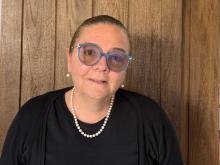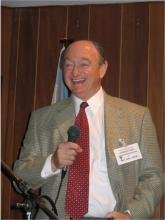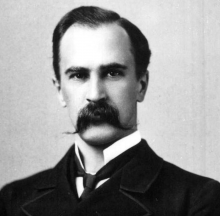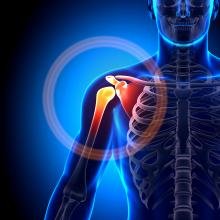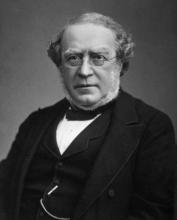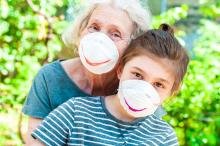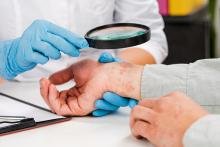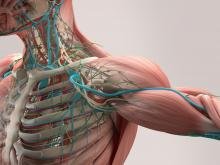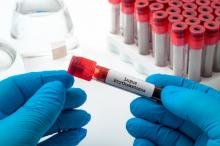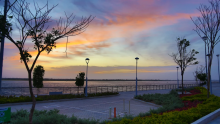Journal clubs have been considered one of the key pillars in medical education and academics for a long time. Journal clubs are a group of people that gather to discuss the merits and flaws of a recent publication of interest to those who make part of said group. This is done on a regular basis and people with different levels of experience and roles attend, generating a joint educational process for the medical practice allowing students and other participants to stay current with the most recent and important information regarding a topic.
Journal clubs have a long trajectory as a mean for medical education. William Osler organized (1) one in 1875 in the McGill University but there is also evidence proving that they were held regularly in Europe (Germany and England).
Journal clubs are very well recognized among the medical community. But a Journal club on Twitter? It is considered to be one step ahead of the usual practices that provides a deeper approach towards those who are interested on a specific topic.
We were used to having groups that gathered to discuss the results, methodology, strengths and weaknesses of a research publication of interest, or any other specific topic. These exchanges give doctors the opportunity to both teach how to perform a critical evaluation of the literature and to keep doctors updated on medicine based on evidence.
At PANLAR Young, the young people network of the Pan-American League of Associations for Rheumatology (PANLAR) ( https://www.panlar.org/red-de-jovenes-reumatologos-panamericanos), they decided to go beyond and to take over the social networks.
The PANLAR Young members explain: “From the beginning of the PANLAR Young group, one of the main objectives has been to provide information, updates and dissemination of studies that are developed within the countries that make part of PANLAR. Knowing the experiences of young rheumatologic groups from other parts of the world, we decided to create these journal clubs and have them on a regular basis through a social network that will allow us the appropriate dynamic for this type of activities. Twitter allows this dynamic and this is why we have called it the Twitter Journal Club (TJC)”.
If there is clarity on what is considered to be the “traditional way”, and it has been this way for many years, the question is, how to develop a journal club on Twitter?
The PANLAR Young Journal Club was formed following the example of some groups that have been formed on Twitter in specialties such as Rheumatology for example, RheumJC (2015) (2) or Emeunet (2017) (3) which is a group of young people from EULAR.
Firstly, a group of coordinators decide the periodicity of the meetings. The objective is not to saturate with information, but to not lose the rhythm of the activity. Which is why they hold virtual events ideally every two months, but this may change depending on the publication of studies of interest or any recent events that may occur during this pandemic period and the great increase in the virtual academic activity.
“In the management group we hold frequent virtual meetings, and we suggest probable topics for development, once we choose it, we agree on who will be the coordinator for the session, this person changes in each meeting to include everyone that is interested in participating. Generally, we have one person responsible for the activity of the PANLAR Young group as well as an expert guest from PANLAR”, they say. Once the topic has been decided, a guideline of questions regarding the topic or article is developed, and the dissemination is made through Twitter and other network publications inviting people to participate on the agreed date and schedule.
Coordinating the TJCPANLAR requires effort and dedication, they say. It all starts with the selection of the topic, the appointment of the coordinator and the publication of the invitation, and finally, the active participation during the journal club.
All rheumatologists may participate in this approach, whether they are members of PANLAR Young or not, they may even participate from other regions as it is open to all who are interested on the matter and that have an interaction on Twitter. Other healthcare professionals that make part of the treatment of rheumatic patients may also participate, even in some cases we may even have the participation of patients as well. The activity is organized by PANLAR Young, but this does not mean that any other rheumatologist can’t participate. They say “moreover, the participation of rheumatologists with more experience and knowledge in this specialty will provide a framework of greater value to this activity. We believe that the participation of all the PANLAR rheumatologists is extremely valuable”.
The TJC is one of many PANLAR Young projects, a study group under the branch of PANLAR made up by active rheumatologists under 40 years of age that was created in 2008 during the Pan-American Congress held in Buenos Aires, Argentina. It seeks to group and disseminate knowledge to reach all rheumatologists within the PANLAR countries. In this group there are approximately 70 rheumatologists of the region with different activities and projects, among these projects we may find the PANLAR TJC.
To date, there have been 10 PANLAR TJC held. The first gathering was held on November 2018 with an important topic within PANLAR, which was the discussion regarding the Latin American guidelines for the treatment of Systemic Erythematosus Lupus (GLADEL Guidelines). (4,5) They say: “COVID-19 has not modified the substantial functioning of the group. The meetings have always been virtual, in that sense, this sanitary emergency did not have a major impact on them. We have noticed an increase in home office and a greater affluence in symposiums, seminars, and virtual activities, they have expanded in an exponential way”.
HOW TO PARTICIPATE
To participate you only need to have a Twitter account “and invest all your interest”, they say. However, if the intention is to know a step by step, you must go online and connect to @TJCPANLAR at the agreed date and time, “there you will find trigger questions being published developed by the coordinator after exhaustively studying the included article(s)”.
The sessions usually last an hour, with previous information regarding the article that will be discussed. The coordinator starts greeting the audience that will be following the conversation through the agreed hashtag (#TJCPANLAR) and after this the questions will be distributed, and a timing will be provided so people may comment after making the questions. The attendants state where they come from and if they have any conflict of interest according to the article that will be discussed, and they will start answering the questions. There are usually 3 to 4 questions answered during the hour, but sometimes there are additional questions that come up on behalf of the audience and the coordinators share them with the participants.
To follow the thread of the discussion, the most important thing to include in all the comments is the #TCJPANLAR hashtag both to reply and to comment.
HISTORY OF #TJCPANLAR
The following is a recount of the TJC carried out to date considering that the focus of the PANLAR Young journal clubs has been to discuss information of interest that has been produced mainly within the region and that is published on any of the specialty magazines worldwide.
- November 2018: First Latin American clinical practice guidelines for the treatment of systemic lupus erythematosus: Latin American Group for the Study of Lupus (GLADEL, Grupo Latino Americano de Estudio del Lupus) – PanAmerican League of Associations of Rheumatology (PANLAR).http://dx.doi.org/10.1136/annrheumdis-2018-213512
- December 2018: Pan-American League of Associations for Rheumatology-Central American, Caribbean and Andean Rheumatology Association Consensus-Conference Endorsements and Recommendations on the Diagnosis and Treatment of Chikungunya-Related Inflammatory Arthropathies in Latin America https://www.panlar.org/sites/default/files/consenso_chikungunya.pdf
- April 2019: Prevalence of Comorbidities and Risk Factors for Comorbidities in Patients with Spondyloarthritis in Latin America: A Comparative Study with the General Population and Data from the ASAS-COMOSPA Study.Bautista-Molano W, Landewé R, Burgos-Vargas R, et al. Prevalence of Comorbidities and Risk Factors for Comorbidities in Patients with Spondyloarthritis in Latin America: A Comparative Study with the General Population and Data from the ASAS-COMOSPA Study. J Rheumatol. 2018;45(2):206-212. doi:10.3899/jrheum.170520 https://www.jrheum.org/content/jrheum/45/2/206.full.pdf
- June 2019: PANLAR consensus statement on biosimilars.Kowalski SC, Benavides JA, Roa PAB, et al. PANLAR consensus statement on biosimilars [published correction appears in Clin Rheumatol. 2019 May 20. Roa PA [corrected to Beltrán PA], Soto LD [corrected to Diaz-Coto JF]]. Clin Rheumatol. 2019;38(5):1485-1496. doi:10.1007/s10067-019-04496-3 https://doi.org/10.1007/s10067-019-04592-4.
- August 2019: Methotrexate Plus Leflunomide Step-Up Therapy in Early Rheumatoid Arthritis Patients with Non-Response to Initial Methotrexate Monotherapy.Carlevaris L, Citera G, Soriano ER, Pellet C, Manzano M, Amaya CG, et al. (2019) Metothrexate Plus Leflunomide Step-Up Therapy in Early Rheumatoid Arthritis Patients with Non-Response to Initial Methotrexate Monotherapy. Rheumatology (Sunnyvale). 9:249. doi: 10.24105/2161-1149.9.249
- September 2019: Time in remission and low disease activity state (LDAS) are associated with a better quality of life in patients with systemic lupus erythematosus: results from LUMINA (LXXIX), a multiethnic, multicentre US cohort. Ugarte-Gil MF, Pons-Estel GJ, Vila LM, McGwin G, Alarcón GS. Time in remission and low disease activity state (LDAS) are associated with a better quality of life in patients with systemic lupus erythematosus: results from LUMINA (LXXIX), a multiethnic, multicentre US cohort. RMD Open. 2019;5(1):e000955. Published 2019 May 23. doi:10.1136/rmdopen-2019-000955 https://www.ncbi.nlm.nih.gov/pmc/articles/PMC6560976/
- October 2019: Update of the guidelines of the Mexican school of Rheumatology. Update of the pharmacological treatment guidelines for Rheumatoid Arthritis of the Mexican School of Rheumatology 2018. http://www.reumatologiaclinica.org//es-actualizacion-guias-del-tratamiento-farmacologico-avance-S1699258X19300798
- December 2019: Rheumatoid Arthritis Patient´s Journey, Delay in Diagnosis and treatment. Rosa JE, García MV, Luissi A, et al. Rheumatoid Arthritis Patient's Journey: Delay in Diagnosis and Treatment [published online ahead of print, 2019 Oct 11]. J Clin Rheumatol. 2019;10.1097/RHU.0000000000001196. doi:10.1097/RHU.0000000000001196 https://journals.lww.com/jclinrheum/Abstract/9000/Rheumatoid_Arthritis_Patient_s_Journey__Delay_in.98914.aspx
- April 2020: Situation of Latin American rheumatology in times of COVID-19. Rheumatological role during the pandemic, clinical studies regarding frequently used treatments in rheumatology for treating COVID-19. Impact of the pandemic in rheumatology.
- July 2020: Prevalence of musculoskeletal disorders and rheumatic diseases in an Argentinean indigenous Wichi community. Juárez, V., Quintana, R., Crespo, M.E. et al. Prevalence of musculoskeletal disorders and rheumatic diseases in an Argentinean indigenous Wichi community. Clin Rheumatol (2020). https://doi.org/10.1007/s10067-020-05130-3 bit.ly/3ettbFS 2.Sánchez E, García de la Torre I, Sacnún M, et al. Effects of Amerindian Genetic Ancestry on Clinical Variables and Therapy in Patients with Rheumatoid Arthritis. J Rheumatol. 2017;44(12):1804-1812. doi:10.3899/jrheum.160485 bit.ly/3eytW0h 3. Peláez-Ballestas, I., Pons-Estel, B.A. & Burgos-Vargas, R. Epidemiology of rheumatic diseases in indigenous populations in Latin-Americans. Clin Rheumatol 35, 1–3 (2016). https://doi.org/10.1007/s10067-016-3298-6 bit.ly/2OrpxBW
References
- Linzer M. The journal club and medical education: over one hundred years of unrecorded history. Postgrad Med J. 1987; 63(740): 475–8. doi: 10.1136/pgmj.63.740.475
- Tacrolimus versus mycophenolate mofetil for induction therapy of lupus nephritis. Rheum JC 2015; Disponible en: https://rheumjc.com/2015/01/1-tacrolimus-versus-mycophenolate-mofetil-for-induction-therapy-of-lupus-nephritis/
- Twitter Journal Club. Emeunet 2020 Disponible en: https://emeunet.eular.org/emeunet_journal_club_archive.cfm
- Pons-Estel BA, Bonfa E, Soriano ER, et al. First Latin American clinical practice guidelines for the treatment of systemic lupus erythematosus: Latin American Group for the Study of Lupus (GLADEL, Grupo Latino Americano de Estudio del Lupus)–Pan-American League of Associations of Rheumatology (PANLAR)Annals of the Rheumatic Diseases 2018; 77:1549-1557. http://dx.doi.org/10.1136/annrheumdis-2018-213512
- Fajardo E. First Latin American Guidelines for Lupus. Global Rheum Panlar 2020. Available in: https://globalrheumpanlar.org/articulo/primeras-guias-latinoamericanas-de-lupus-216
ABOUT PANLAR YOUNG
Here you may find other activities that are also being carried out by PANLAR Young:
● Case of the month. This activity is done through Twitter, it consists in presenting an image of interest and starting a discussion regarding the diagnosis and treatment.
● PANLAR Copa América. It was first held during the previous Congress in Quito 2019. It is an interactive leisure initiative where participants are tested for their knowledge in rheumatology as well as general topics, through a multiple-choice questionnaire creating a competition between participant countries.
● PANLAR Young Symposium. For the first time we will develop this activity during the framework of the PANLAR Congress.
“There are currently various projects that we have been planning with great enthusiasm and effort for the development of PANLAR Young”, they state.
PANLAR Young has almost 70 members of the region.
The government committee is formed by:
● Carlos Enrique Toro Gutiérrez, Colombia @carlostororeuma
● Nelly Colman McLeod, Paraguay @LeodNelly
● Sebastián Herrera Uribe, Colombia @Reuma_Online_
● Florencia Vivero, Argentina @Florenciaviver4
● Wilson Bautista Molano, Colombia @WilsonBautistaM
● Azalea Rojas, México @Azaleasarai
● Leandro Ferreyra Garrott, Argentina @LeoFerreyraG
Panlar Young is a group derived from PANLAR. A network of young Pan-American rheumatologists that have the main objective to strengthen the position of PANLAR in the creation and execution of new educational, research, social, and association projects in the region. It is a participative, inclusive, and innovative group that seeks to contribute to the continuous development and growth of PANLAR.
The objectives are directed towards building ties that facilitate the interaction among the rheumatologists of the region and towards promoting education in the different countries, to contribute with new ideas for future PANLAR courses and #PanlarEdu under the organization and in compliance with the PANLAR standards, annually recruiting leaders from all countries of the region to ensure the constant renovation of the group, to contribute to the development of a dedicated profile on social networks and to promote research in the rheumatology field within the Pan-American region.
For more information, please contact secretaria@panlar.org.

































